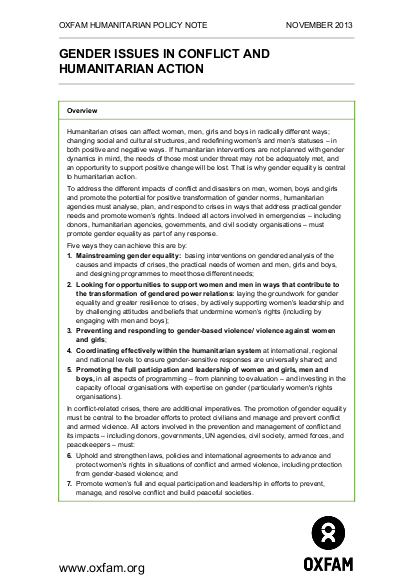
Humanitarian crises can affect women, men, girls and boys in radically different ways; changing social and cultural structures, and redefining women’s and men’s statuses – in both positive and negative ways. If humanitarian interventions are not planned with gender dynamics in mind, the needs of those most under threat may not be adequately met, and an opportunity to support positive change will be lost. That is why gender equality is central to humanitarian action. To address the different impacts of conflict and disasters on men, women, boys and girls and promote the potential for positive transformation of gender norms, humanitarian agencies must analyse, plan, and respond to crises in ways that address practical gender needs and promote women’s rights. Indeed all actors involved in emergencies – including donors, humanitarian agencies, governments, and civil society organisations – must promote gender equality as part of any response.
